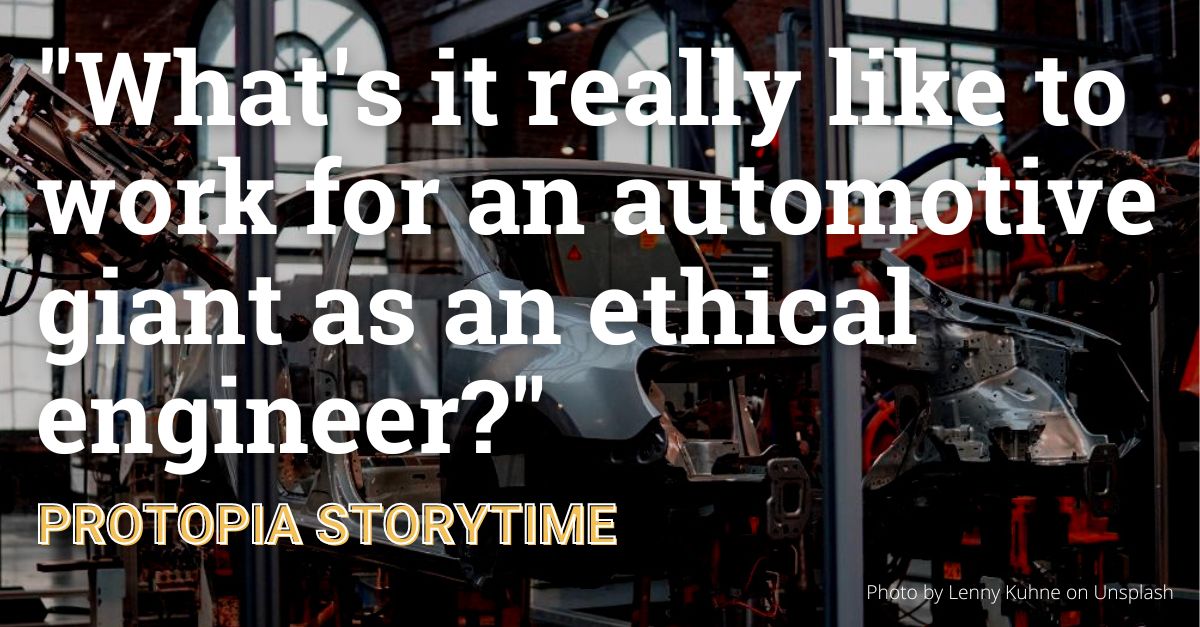#engagementstory
MICHIGAN VETERAN STUDENT SEARCHING FOR ETHICAL AUTOMOTIVE MANUFACTURER
By MAX LEISTEN

To celebrate Veterans Day in the United States, I am sharing a request from a Navy veteran and University of Michigan mechanical engineering student wondering if inclusivity, sustainability, environmentally conscious are just labels for automotive giants.
Personally, I am ecstatic that younger generations are values-first, that they focus on saving the planet, making an impact, and improving the human condition. You go!
And if you’ve served — thank you.
Max
The "ask"
Hi my name is Adam. I am a Navy veteran and a junior working towards a bachelors in Mechanical Engineering.
Ahead of applying for internships I saw that almost every company had a similar outward appearance. Labels like inclusivity, environmentally conscious, sustainability, etc. are all very face forward. Does that culture last outside of the initial greeting or is that just to get you in the door?
Ideally, I’d like to not add to the problem of excess plastics or dirty energy / manufacturing processes. What is it really like to work for someone like an automotive giant as an ethically minded engineer? I understand that what I’m saying / asking may be a little cliche but I am still curious what its like when working in the real world.
Thank you so much for your attention and any insights!
The "give"
Hi Adam,
The truth is somewhere in the middle. I too aspire for the world you’re talking about, but the way the businesses are structured can make that difficult sometimes. Speaking from my experience at Ford, engineers had to balance between performance, costs, and the marketing benefits of sustainability. As an engineer at any company, a service you can always do is reduce usage (material, energy, labor) in manufacturing, operation, and end of life. In that way, improving performance is better for the company and the environment as a whole.
My colleagues in research had more leeway for products not to initially make financial sense, or have risk involved, while my more production-oriented friends had less leeway.
That limiting perspective is one of the core reasons my company chooses not to directly sell products because we can change how that equation sums up at the end. You can engineer a business where ethics are profitable.
One thing I will say is that plastics are a dirty word, but just because they’re abused doesn’t mean they’re bad. Did you know, black thermoplastics reinforced with lignin, hemp or a variety of natural fibers can be infinitely remolded, recycled, and reused without degradation of material properties? When used in combination with a metallic skeleton you reduce all of the above negative externalities I mentioned (material, energy, labor). Just food for thought 😉
Happy to talk more, feel free to reach out on LinkedIn, email me directly alum@email.com.

Protopia’s artificial intelligence technology makes it truly simple for everyone in your community to connect for advice and support. Without another app to sign up for or learn.
Delivering Alumni As A Service across the entire learner’s journey.
Welcome to the Future.
© Copyright 2025. All Rights Reserved. | Terms Of Services | Privacy Policy | Cookie Policy | GDPR | Accessibility Statement



